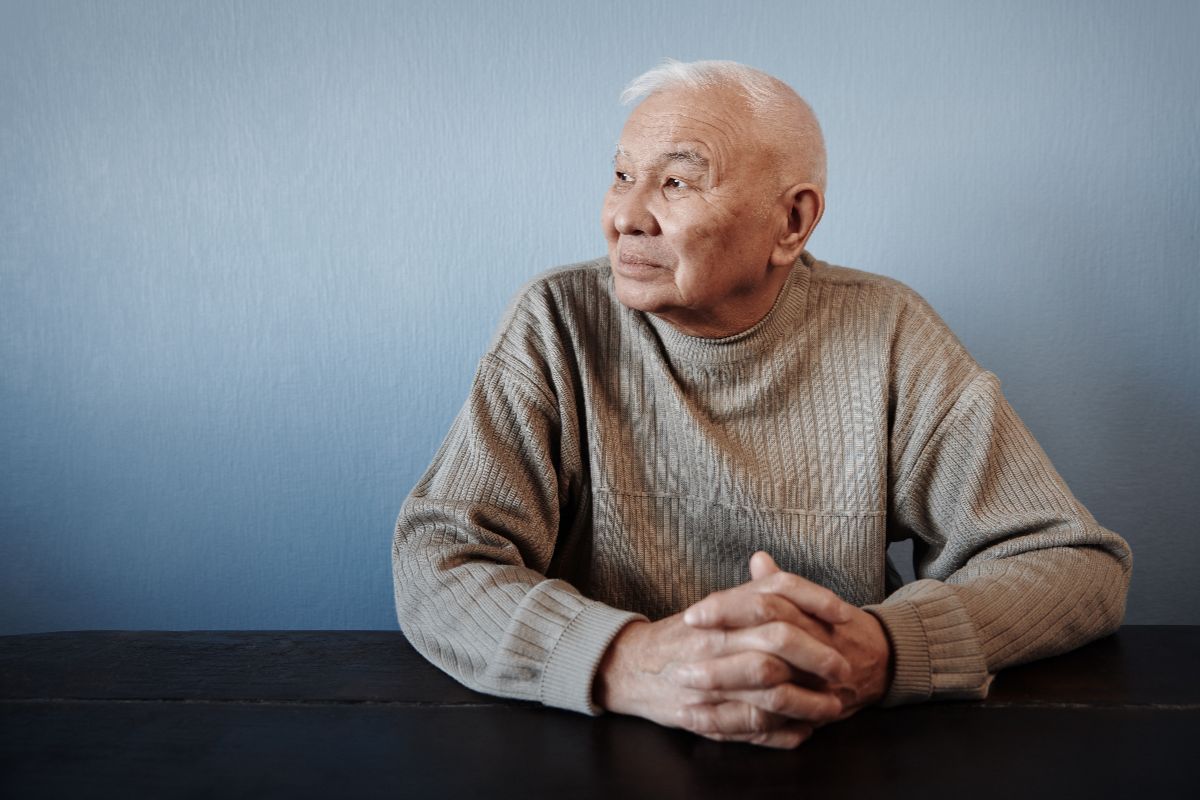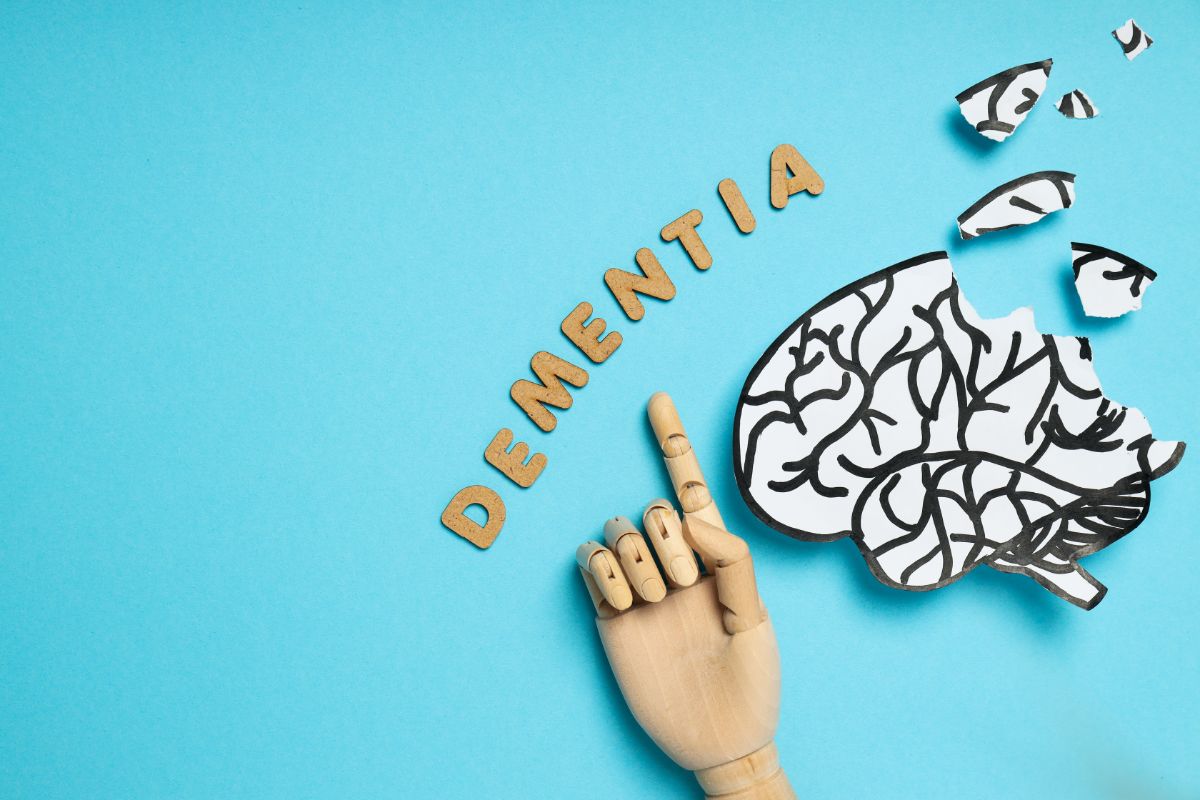Overview
- In this article, we take a closer look at the early signs of dementia in men you shouldn’t ignore, why they matter, and how natural approaches like Bacopa Monnieri may help support brain health.
- For men, the early signs might show up in subtle ways, like changes in judgment, memory lapses, or withdrawing from social situations.
- While these symptoms can easily be brushed off, they may actually be early indicators of cognitive decline.
Dementia is often linked to aging, but it’s not a normal part of growing older. For men, early symptoms can be subtle and easy to dismiss as simple forgetfulness or stress. Since it develops gradually, spotting the warning signs early is key.
In this article, we’ll explore early signs of dementia in men you shouldn’t ignore and introduce natural ways to support brain health, like Bacopa Monnieri, a memory-enhancing supplement now gaining attention in the Philippines for its cognitive benefits.
Memory loss that disrupts your life is more than just occasionally misplacing your keys or forgetting a name and remembering it later. If you find yourself frequently forgetting important dates, appointments, or tasks, and these slip-ups start affecting your daily routine, it might be time to take a closer look.
It’s also important to understand the difference between normal age-related forgetfulness and early dementia. Everyone has memory lapses now and then, like forgetting where you put your phone or walking into a room and momentarily forgetting why. However, if you’re forgetting information you just learned, struggling to hold a conversation because you lose track of what’s being said, or getting confused in familiar places, these may be warning signs. Pay attention to how often these moments happen and how much they interfere with your everyday life.

If you’ve noticed yourself making decisions that feel a little off, like giving away money without thinking it through, ignoring bills, or skipping meals without a good reason, it might be more than just being tired or distracted. These changes can creep in gradually, making them easy to dismiss at first.
But here’s the thing: consistent lapses in judgment can be one of the early signs of dementia in men. It’s not about being forgetful now and then; we all have those moments.
It’s when your decision-making starts to affect your daily life, or when others start questioning choices that used to come naturally to you. If you find yourself second-guessing decisions more often, or making choices that just don’t feel like “you,” it’s worth paying attention.
Social gatherings, work commitments, and hobbies are all part of what keeps life meaningful, active, and connected. When you start stepping back from these things, not because you’re busy or tired, but because they suddenly feel overwhelming, confusing, or just not enjoyable anymore, it might be more than just getting older.
Withdrawal from social or work activities can be one of the early signs of dementia. You might notice that conversations are harder to follow, or you feel more anxious in group settings. Tasks that once felt automatic might take more effort or seem frustrating. Rather than face those uncomfortable situations, it can feel easier to just opt out entirely.
What’s important to understand is that this kind of withdrawal isn’t just about being introverted or needing alone time; it’s a noticeable shift in how you engage with the world around you.

You might find yourself reacting to situations in ways that feel unfamiliar, getting irritated more easily, losing interest in things you used to enjoy, or feeling anxious or withdrawn for no clear reason. These shifts aren’t just about having a bad day or being stressed.
They often come from changes happening deep in the brain, particularly in areas that control emotion, behavior, and decision-making. When these mood changes persist or start to interfere with your daily life, it could be your mind’s way of signaling that something more serious is going on.
The key is to pay attention to how long these changes last and how different they feel from your usual self. Spotting them early gives you the chance to talk to a doctor, take action, and protect your cognitive health moving forward.
Spatial tasks involve understanding where objects are in space, like judging distance when driving, reading a map, or placing something on a shelf without knocking things over.
You might find yourself misjudging how far away a step is, having trouble parking your car, or even struggling to follow directions you used to know well. These aren’t just signs of getting older; they could be clues that your brain is having trouble processing visual information the way it used to.
What’s happening is that the parts of your brain responsible for understanding spatial relationships may be affected by early dementia. You may not realize it right away, but when daily tasks that involve movement and space start to feel confusing or frustrating, it’s worth paying attention.
Recognizing the early signs of dementia in men you shouldn’t ignore is key to getting the right help at the right time. These early indicators like memory issues, poor judgment, mood changes, and difficulty with spatial tasks, may seem minor at first but can signal deeper cognitive changes. Addressing them early allows you to explore treatments, make lifestyle changes, and preserve your quality of life for as long as possible.
Looking for a natural way to support memory and focus? Bacopa Monnieri tea is traditionally used as a brain tonic; it is believed to help enhance memory, reduce anxiety, and support overall cognitive function. Contact us now to discover more about how Bacopa Monnieri can benefit you or a loved one.

What are natural ingredients that support healthy hair from root to ti

What are the lifestyle recommendations for those with Alzheimer’

Overview This article talks about the different stages of dementia and

What are the early symptoms of dementia? Memory loss that disrupts eve
Oyuncular için güvenin simgesi haline gelen bettilt giriş politikaları memnuniyet sağlıyor.
Modern tasarımıyla dikkat çeken bettilt sürümü kullanıcıların ilgisini çekiyor.
Ruletin popülaritesi, bettilt bonus kodu tarafından düzenlenen canlı turnuvalarla daha da artmıştır.
Modern video slotları etkileyici grafiklerle birleştiğinde, bahsegel deneme bonusu deneyimi daha da heyecanlı hale getirir.
Güncel kalmak isteyenler bahsegel üzerinden bağlantı kuruyor.
Daha çok eğlence isteyen oyuncular için bettilt oldukça cazip.
Gelecek yılki sürüm olan bettilt yeni özelliklerle geliyor.